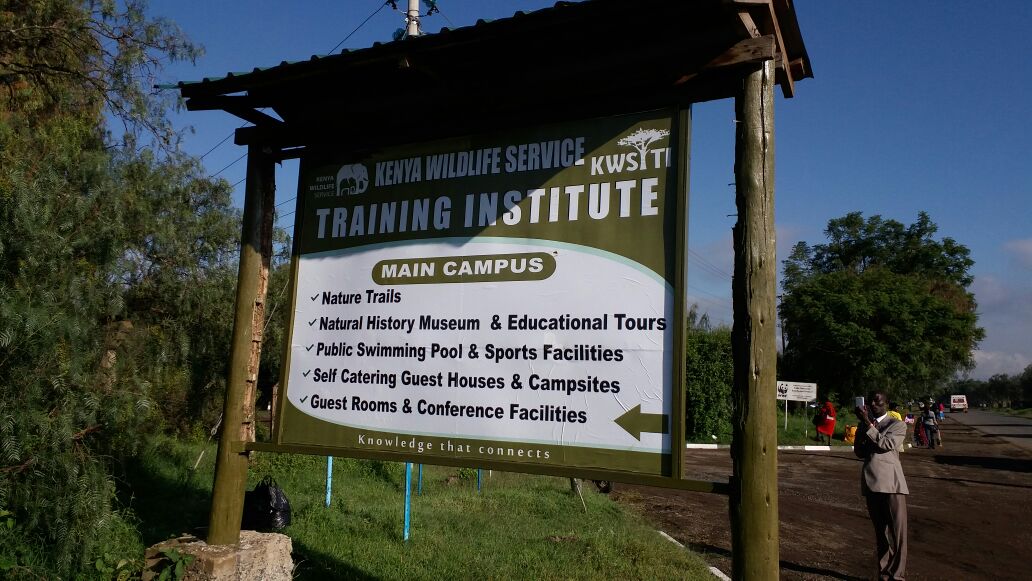The Kenya Wildlife Service Training Institute (KWSTI), located in Naivasha, Nakuru County, is a premier institution dedicated to training professionals in wildlife conservation, environmental management, and tourism. Operating under the Kenya Wildlife Service (KWS) and registered as a Technical and Vocational Education and Training (TVET) institution with the Ministry of Education, KWSTI plays a pivotal role in advancing Kenya’s biodiversity conservation efforts. Established in 1985 and later renamed in 1996, KWSTI offers competency-based programmes aligned with the Kenya National Qualifications Framework (KNQF) at levels 4 (Artisan), 5 (Certificate), and 6 (Diploma). This article provides a detailed overview of the full list of courses offered at KWSTI for the 2025/2026 academic cycle, admission requirements, programme durations, and career prospects, optimized for readers seeking actionable insights into wildlife and environmental education.
Why Study at Kenya Wildlife Service Training Institute?
KWSTI stands out as a leader in wildlife and environmental training, offering programmes that blend practical skills with theoretical knowledge to address Kenya’s conservation challenges. Here’s why KWSTI is an excellent choice for aspiring professionals in the wildlife and tourism sectors:
- Specialized Curriculum: Courses focus on natural resource management, ecology, and tourism, tailored to Kenya’s unique biodiversity needs.
- Strategic Location: Situated in Naivasha, near Lake Nakuru National Park, KWSTI provides hands-on learning in a rich ecological environment.
- Industry Connections: As part of KWS, KWSTI collaborates with conservation organizations, enhancing job placement opportunities.
- Competency-Based Training: Programmes are developed with the TVET Curriculum Development Assessment and Certification Council (TVET-CDACC), ensuring industry relevance.
- Commitment to Conservation: KWSTI supports Kenya’s Wildlife Conservation and Management Act, 2013, contributing to sustainable biodiversity management.
This guide explores KWSTI’s offerings for the 2025/2026 cycle, ensuring you have all the information needed to pursue a career in wildlife conservation or related fields.
Full List of Courses Offered at Kenya Wildlife Service Training Institute (2025/2026)
Below is the complete list of programmes offered at KWSTI for the 2025/2026 academic year, as per the Kenya Universities and Colleges Central Placement Service (KUCCPS) data. The courses include certificate and diploma programmes, with additional short courses available to meet diverse career goals.
1. Diploma in Environmental Management
- Programme Code: 1092712
- Duration: 3 years
- Minimum Entry Requirements: KCSE Mean Grade C- (minus) or equivalent; credits in English, Biology, Geography, or Chemistry are advantageous.
- Overview: This programme equips students with skills to manage environmental resources sustainably, covering topics like environmental impact assessment, waste management, and climate change mitigation. It includes field-based training and industrial attachments.
- Career Prospects: Environmental officers in government agencies, NGOs, or private firms; roles in environmental consultancy or conservation projects.
2. Diploma in Tourism and Hospitality Management
- Programme Code: 1092757
- Duration: 3 years
- Minimum Entry Requirements: KCSE Mean Grade C- (minus) or equivalent; credits in English, Geography, or Business Studies are preferred.
- Overview: Focused on sustainable tourism, this course trains students in tour operations, hospitality management, and customer service within wildlife and eco-tourism contexts. Practical training includes internships in national parks and conservancies.
- Career Prospects: Tour guides, hospitality managers, or tourism officers in KWS, travel agencies, or eco-lodges.
3. Certificate in Aquaculture
- Programme Code: 1092759
- Duration: 2 years
- Minimum Entry Requirements: KCSE Mean Grade D (plain) or equivalent.
- Overview: This programme teaches fish farming techniques, water quality management, and aquatic ecosystem conservation. It emphasizes practical skills for sustainable aquaculture practices.
- Career Prospects: Aquaculture technicians, fish farm managers, or roles in fisheries departments and private fish farms.
4. Certificate in Community Wildlife Management
- Programme Code: 1092785
- Duration: 2 years
- Minimum Entry Requirements: KCSE Mean Grade D (plain) or equivalent.
- Overview: Designed to empower communities in wildlife conservation, this course covers human-wildlife conflict mitigation, community-based conservation, and resource management. Fieldwork is a core component.
- Career Prospects: Community conservation officers, wildlife scouts, or roles in conservancies and NGOs.
5. Diploma in Fisheries and Aquatic Sciences
- Programme Code: 1092837
- Duration: 3 years
- Minimum Entry Requirements: KCSE Mean Grade C- (minus) or equivalent; credits in Biology, Chemistry, or Geography are advantageous.
- Overview: This programme focuses on the management of aquatic ecosystems, fish production, and conservation of aquatic biodiversity. It includes practical training in fisheries management and industrial attachments.
- Career Prospects: Fisheries officers, aquatic scientists, or consultants in government agencies, research institutions, or aquaculture enterprises.
6. Diploma in Wildlife Management
- Programme Code: 1092843
- Duration: 3 years
- Minimum Entry Requirements: KCSE Mean Grade C- (minus) or equivalent; credits in Biology, Geography, or Chemistry are preferred.
- Overview: A flagship programme at KWSTI, this course trains students in wildlife conservation, habitat management, and anti-poaching strategies. It includes field training in national parks and two 12-week industrial attachments.
- Career Prospects: Wildlife rangers, conservation officers, or researchers in KWS, conservancies, or international conservation organizations.
7. Certificate in Nature Interpretation and Tour Administration
- Programme Code: 1092929
- Duration: 2 years
- Minimum Entry Requirements: KCSE Mean Grade D (plain) or equivalent.
- Overview: This course prepares students to guide tourists through natural environments, interpret ecological systems, and manage tour operations. It emphasizes communication and customer service skills.
- Career Prospects: Tour guides, nature interpreters, or administrative roles in tourism agencies and national parks.
Additional Programmes at KWSTI
KWSTI offers other programmes to address specific industry needs, though not listed in the KUCCPS 2025/2026 cycle:
- Certificate in Wildlife Sanctuary Management
- Duration: 2 years
- Entry Requirements: KCSE Mean Grade D (plain) or equivalent.
- Overview: Focuses on managing wildlife sanctuaries, including habitat restoration and species protection.
- Career Prospects: Sanctuary managers or conservation assistants.
- Short Courses
- Duration: A few weeks to months
- Examples:
- Wildlife Census Techniques
- Human-Wildlife Conflict Management
- Eco-Tourism and Sustainable Tour Guiding
- Basic Ranger Training
- Entry Requirements: KCSE certificate or relevant work experience.
- Career Prospects: Skill enhancement for conservation professionals, rangers, or community leaders.
Admission Requirements and Application Process
General Admission Requirements
- Diploma Programmes: KCSE Mean Grade C- (minus) or equivalent; credits in relevant subjects like Biology, Geography, Chemistry, or English are advantageous.
- Certificate Programmes: KCSE Mean Grade D (plain) or equivalent.
- Short Courses: Vary by programme; typically require a KCSE certificate or relevant experience.
- Additional Requirements: Applicants may need to pass an interview or demonstrate physical fitness for field-based courses like Wildlife Management.
Application Process
- Obtain Application Form: Download from the KWSTI website (www.kws.go.ke or www.wrti.go.ke) or collect from the Naivasha campus.
- Pay Application Fee: Deposit KShs 1,000 (non-refundable) to the designated KWS or KWSTI bank account (details available on the website).
- Submit Application: Include photocopies of academic certificates, national ID, and the application fee receipt. Submit to the Principal, KWSTI, P.O. Box 842-20117, Naivasha, Kenya.
- Intake Periods: January, May, and September (confirm specific dates on the website).
- KUCCPS Applications: Apply through the KUCCPS portal (students.kuccps.net) for the listed programmes.
Scholarships and Financial Aid
KWSTI offers limited scholarships through KWS and partner organizations for students committed to wildlife conservation. Applicants must:
- Meet academic and physical requirements.
- Pass an interview process.
- Commit to working in Kenya’s conservation sector post-graduation. Contact the KWSTI admissions office at training@wrti.go.ke or +254 0700 000 321 for scholarship details.
Fee Structure and Accommodation
Fee Structure
Fees vary by programme and are subject to change. For the 2025/2026 cycle:
- Diploma Programmes: Approximately KShs 60,000–80,000 per year.
- Certificate Programmes: Approximately KShs 40,000–60,000 per year.
- Short Courses: KShs 10,000–30,000, depending on duration. Contact KWSTI at +254 0731 919 465 or wrti@wrti.go.ke for the latest fee structure.
Accommodation
- On-campus hostels are available at the Naivasha campus, offering secure and serene living conditions.
- Cost: Approximately KShs 20,000–30,000 per semester (subject to availability).
- Confirm accommodation availability before payment.
KWSTI’s Role in Conservation and Industry Impact
KWSTI, established in 1985 as the Naivasha Wildlife and Fisheries Training Institute, has evolved into a leading TVET institution under KWS. Its programmes support Kenya’s Wildlife Conservation and Management Act, 2013, and contribute to national initiatives like the National Wildlife Census 2024–2025 and the National Human-Wildlife Coexistence Strategy 2024–2033. The institute’s graduates are instrumental in:
- Wildlife Conservation: Protecting endangered species like black rhinos and elephants.
- Eco-Tourism: Promoting sustainable tourism in national parks and conservancies.
- Community Engagement: Mitigating human-wildlife conflicts through community-based conservation.
- Research and Policy: Supporting the Wildlife Research and Training Institute (WRTI) in data-driven conservation strategies.
Career opportunities for KWSTI graduates include:
- Public Sector: KWS, Ministry of Tourism and Wildlife, county governments.
- Private Sector: Conservancies, eco-lodges, tour operators.
- NGOs: World Wide Fund for Nature (WWF), Mara Elephant Project.
- Self-Employment: Tour guiding, aquaculture ventures, or environmental consultancy.
Why KWSTI Stands Out in 2025/2026
KWSTI’s proximity to Lake Nakuru National Park and its integration with KWS’s conservation mandate provide unparalleled hands-on learning opportunities. The institute’s partnership with WRTI enhances research-driven training, while its focus on TVET-CDACC-accredited programmes ensures graduates meet industry standards. Additionally, KWSTI’s Hippo Campsite offers a unique outdoor experience for students, fostering a deep connection with nature.
The Kenya Wildlife Service Training Institute is a gateway to rewarding careers in wildlife conservation, environmental management, and sustainable tourism. Its diverse programmes for the 2025/2026 academic cycle, from the Diploma in Wildlife Management to the Certificate in Aquaculture, cater to various skill levels and career aspirations. With flexible intakes, scholarship opportunities, and a commitment to Kenya’s biodiversity, KWSTI is an ideal choice for those passionate about preserving the country’s natural heritage.
For more information or to apply, visit www.kws.go.ke or www.wrti.go.ke, or contact the institute at training@wrti.go.ke. Start your journey in wildlife conservation today!





